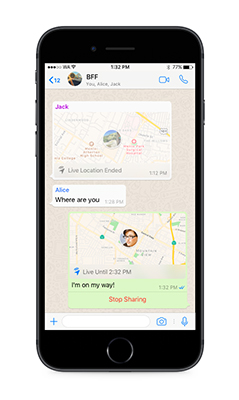 Argentinian ambulance doctors are using WhatsApp to fasttrack their patients’ care. Study data presented at the Argentine Congress of Cardiology’s 2017 conference suggests that using the free messaging app to send diagnostic electrocardiograms (ECGs) directly to a hospital’s catheterization lab allowed heart attack patients to bypass the emergency department and reduce mortality.
Argentinian ambulance doctors are using WhatsApp to fasttrack their patients’ care. Study data presented at the Argentine Congress of Cardiology’s 2017 conference suggests that using the free messaging app to send diagnostic electrocardiograms (ECGs) directly to a hospital’s catheterization lab allowed heart attack patients to bypass the emergency department and reduce mortality.
“We found that notifying the cath lab in advance using WhatsApp and transferring patients directly from the ambulance, bypassing the emergency department, led to quicker treatment and better outcomes for patients with STEMI," Dr. Nicolás Lalor, cardiologist at the Cardiovascular Institute of Buenos Aires in Sanatorio Anchorena, Argentina, said in a statement. "Advanced notification enables hospital staff to prepare the cath lab and the doctor is ready to start primary angioplasty when the patient arrives."
In the observational study, researchers examined 896 ST-segment elevation myocardial infarction (STEMI) patients treated between 2012 and 2016. These patients were analyzed within three groups: those who arrived at an emergency department by their own means (211 patients), those who arrived to and emergency department via an ambulance (325 patients), and those who were delivered directly to the catheterization lab by the ambulance (360 patients). For this last group, ambulance doctors conducted an ECG as they met the patient, and transmitted the ECGs of positive STEMI diagnoses directly to a cardiologist using WhatsApp. By doing so, the hospital staff were alerted and able to prepare the lab for the patients' arrival.
"More than 42,000 heart attacks occur in Argentina every year,” Lalor said. “Patients have the best chance of survival when they receive primary angioplasty to restore blood flow to blocked arteries within 90 minutes of contacting the health service. Numerous delays can occur before and after patients reach the hospital which lead to this treatment target being missed.”
The researchers’ analysis found that patients who received an ECG from the ambulance doctor received treatment significantly faster than patients in the other two groups. Further, the third patient group’s 0.83 percent mortality rate was found to be significantly lower than the 3.17 percent rate of those who first were seen in an emergency department. The WhatsApp group also had shorter hospital stays, and were discharged with better left ventricular ejection fractions.
“This is a very easy way to improve the treatment of acute myocardial infarction in our country,” Dr. Alberto Fernández, the scientific program coordinator of the annual conference, said in a statement. “Given the very long distances between centers that have percutaneous transluminal coronary angioplasty facilities, particularly in cities in the interior of the country, the opportunity to call the interventional cardiologist and prepare the cath lab oculd improve the prognosis of patients.”
Facebook-owned WhatsApp also rolled out real-time location services earlier this week. The cross-platform messaging and video chat platform was acquired by Facebook in 2014 for $19.3 billion, and has boasted more than 1 billion active users since last year. Although WhatsApp features end-to-end encryption and has previously been a resource during international health crises, it is not currently HIPAA compliant.













